
5 minutes reading time
Step by step towards automation
Since 2016, the Austrian manufacturer of track construction machines system7 has been relying on digital camera technology from Liebherr.
Find out how the MDC3 cameras perform in demanding everyday work – and what decisive added value system7 sees in Liebherr cameras when it comes to the future of track construction.
About system7
The company, based in Laakirchen (Upper Austria), offers robust and durable machines as well as state-of-the-art technologies to meet the challenges in track construction and create an efficient and safe working environment.
One focus of system7 is the development and production of tamping machines. The tamping units of these machines plunge into the ballast bed with the tamping tines, compact it with the necessary high vibration forces, thus stabilising the ballast bed homogeneously and restoring the required track geometry.
Robust
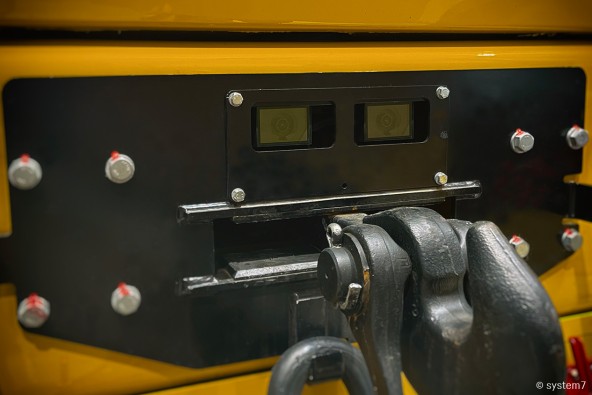
Master every challenge
The Austrian manufacturer's tamping machines are subjected to extremely challenging mechanical and climatic conditions throughout their years of operation. In order to guarantee the availability of the machines, all installed components must therefore be resilient and durable. A failure of the machines would not only be costly, but would also have a major impact on railway operations.
Up to 24 MDC3 cameras are used in system7's tamping machines. These are robust, durable and specially designed for extreme conditions. By using this modern technology, Liebherr offers a solution that meets the special requirements and challenges of track construction.
Track works are really challenging for all the components in our machines. In particular, they have to cope with strong vibrations, dust and temperature changes. The MDC3 camera deals with these demanding operating conditions in an exemplary manner.
Multicasting
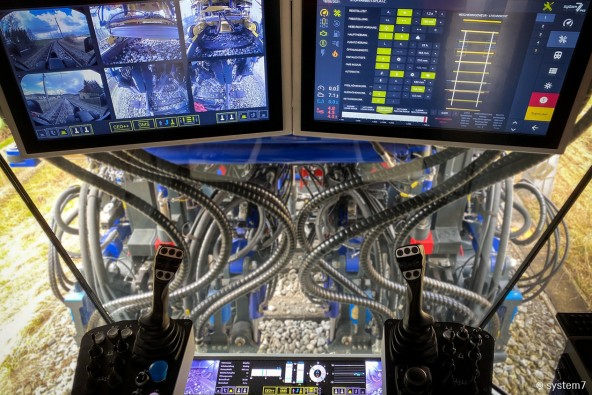
A must-have for efficient track construction work
Another challenge in track construction is that track-laying machines are equipped with several driving and working cabins, which are located at great distances from the work sites. It is important that relevant visual information is available in real time in all operator stands at the same time.
Therefore, the Liebherr camera offers an efficient solution. The so-called multicasting function of the MDC3 allows users to view identical video streams on several monitors simultaneously. This in turn provides more control and monitoring of different work processes.
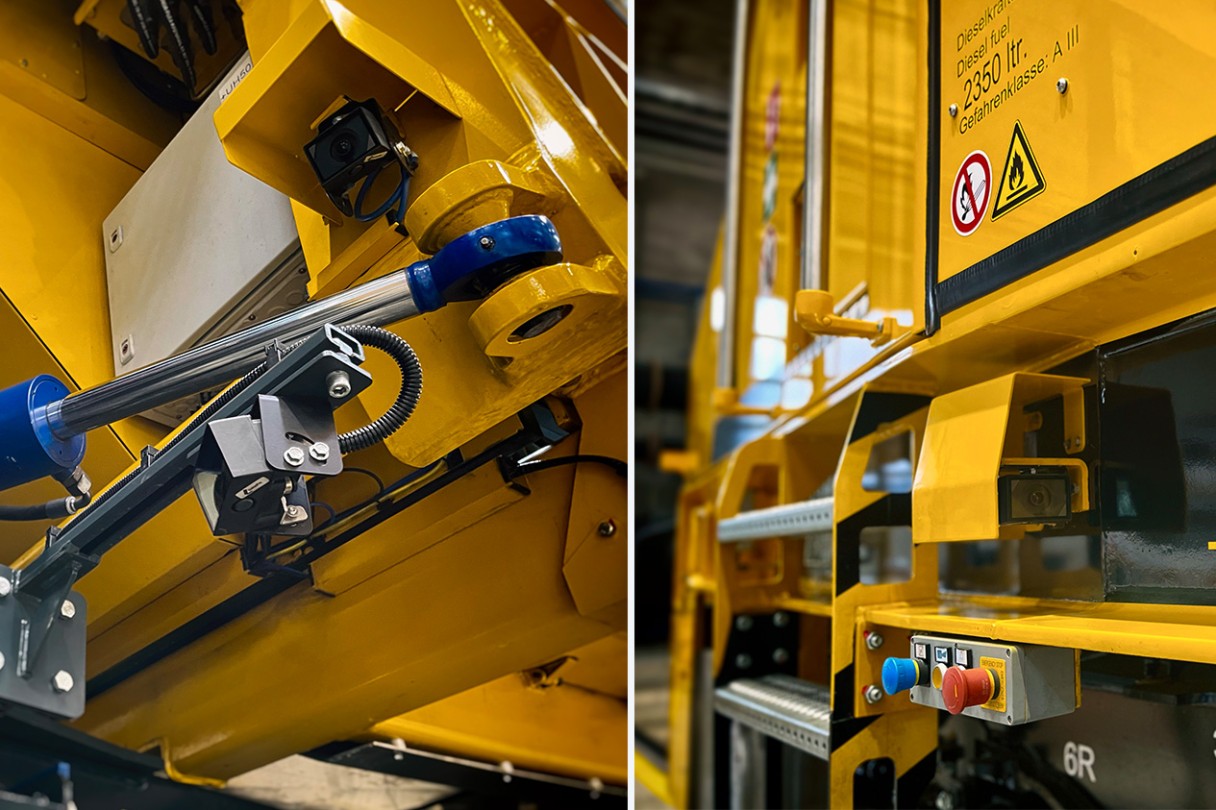
Always sharp
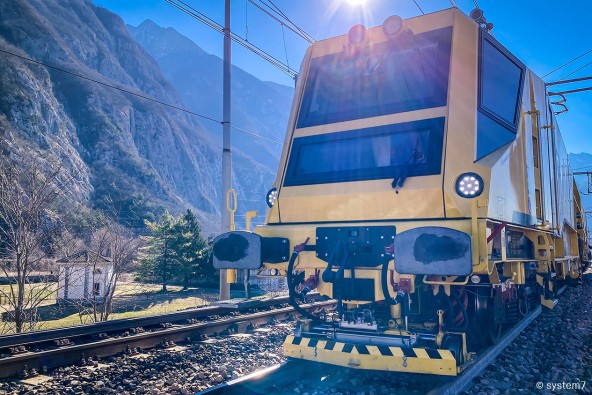
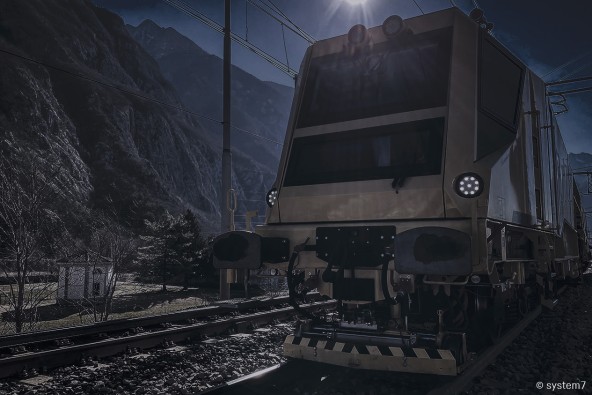
Clear view in any environment
For track construction, accurate and sharp images are essential to ensure work safety. However, difficult lighting conditions on the tracks can affect the quality of the images. Another challenge is that most of the track construction work takes place at night when there are fewer trains on the tracks. Therefore, it is important that the cameras provide detailed image information even in challenging lighting conditions.
The MDC3 camera solves this problem thanks to its high-performance imager and HDR technology, which provides detailed high-contrast images even in dark environments. Even in changing lighting conditions, the camera quickly adapts to the new environmental situation.
"Since the previous generation Liebherr camera has already proven itself after long-term use, our machines now benefit from the features and high image quality of the MDC3. A sharp image with many details facilitates image interpretation, and thus ensures greater efficiency and safety in operation," adds Harald Hüttmayr, head of automation technology at system7.
Automation
The high image quality and digital camera technology pave the way for further automations that make the use of the machine even more convenient and efficient. Of course, the low latency that we can achieve at this point with the MDC3 is also essential.
The future of track construction work
For system7, the high image quality and digital camera technology pave the way for further automations that make the use of the machines even more convenient and efficient. The low latency of the MDC3 plays a decisive role in this.
What remains is the exciting question of what form automation will take in the future of track construction – and when.
By clicking on “ACCEPT”, you consent to the data transmission to Google for this video pursuant to Art. 6 para. 1 point a GDPR. If you do not want to consent to each YouTube video individually in the future and want to be able to load them without this blocker, you can also select “Always accept YouTube videos” and thus also consent to the respectively associated data transmissions to Google for all other YouTube videos that you will access on our website in the future.
You can withdraw given consents at any time with effect for the future and thus prevent the further transmission of your data by deselecting the respective service under “Miscellaneous services (optional)” in the settings (later also accessible via the “Data protection settings” in the footer of our website).
For further information, please refer to our Data Protection Declaration and the Google Privacy Policy.*Google Ireland Limited, Gordon House, Barrow Street, Dublin 4, Ireland; parent company: Google LLC, 1600 Amphitheatre Parkway, Mountain View, CA 94043, USA** Note: The data transfer to the USA associated with the data transmission to Google takes place on the basis of the European Commission’s adequacy decision of 10 July 2023 (EU-U.S. Data Privacy Framework).
